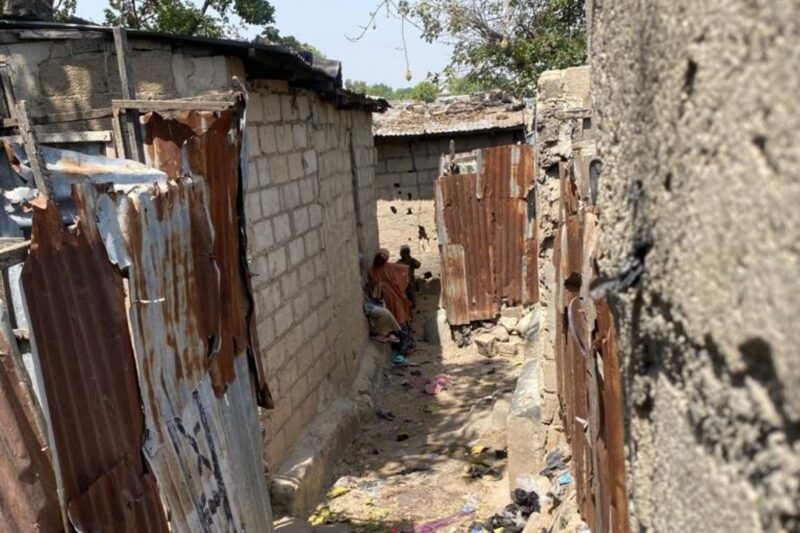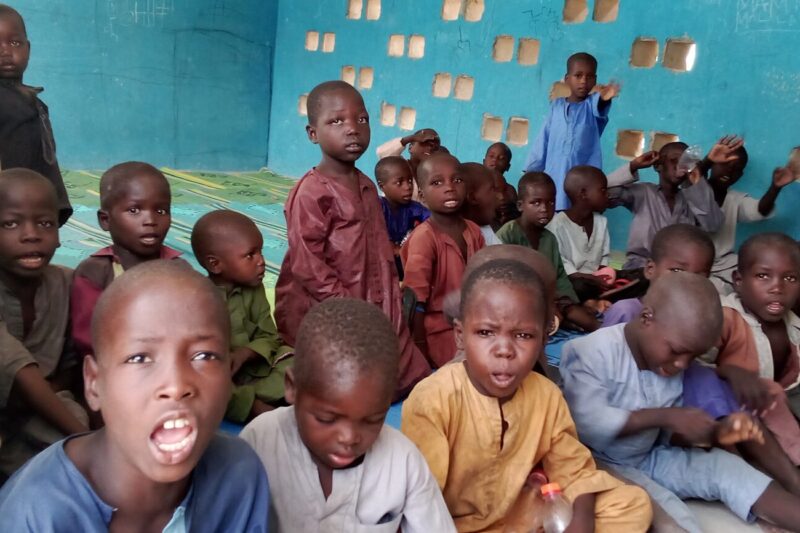Beggars say the Borno State government should provide some other means for the disabled and elderly to make money otherwise they will die of hunger.
Disabled and elderly people are struggling the most since the Borno State government announced last week that there would be no more begging, loitering of gallivanting on Maiduguri streets and say that if they don’t get aid soon they will starve to death.
They told RNI that begging was there only means to make money to support their families.
Adamu Idris, a physically disabled person from the Gwange community, said: “I do not have any other way to support myself and my family. I depend solely on begging. I am married with eight children. When we were still allowed to beg, I could provide food for the family. But even before the ban, we struggled to eat just twice a day.
“Now all my children are no longer attending school because I cannot afford the fees or the other essentials they need for learning.
“It has been six days since I have not been able to go out to beg. I am scared to go because I am afraid government officials will catch me and I will be punished. We cannot go against the government order so we have to remain at home. For the past four days I borrowed money from a vendor so that I could put food on the table. But I can’t rely on borrowing to feed my family – that’s simply not sustainable.”
Musa Dahiru from Gwange is blind.
“I have no other business. The only thing I can do is beg. For the past week I have spent my time at home with my family. I have three wives and 20 children. I am blind. I depend on begging to get money for what we need. I do not have the capital to start a business and, besides, what would I do? I am not trained and I cannot see. I have decided to try to get some money for transport. Then we will move to another state. For me, that’s the only solution.”
Hauwa Ali, a blind woman, told RNI that despite the ban, she has continued to go to the streets to beg. The only thing that has changed is the location where I beg. I no longer go anywhere near busy highway and street junctions. Now I beg within my community. My children also beg. Since I am blind, I rely on them to be my eyes. They are constantly looking out for government officials or security personnel. We are very careful.
“When we finish for the day, we also make sure there are no security personnel. We are doing whatever we can so that they don’t catch us. But we are living in fear and we are in an extremely difficult position. I don’t want to disobey the government. But if we don’t go out to beg we will die of hunger.
“If the government does not want us to beg in the streets, it needs to provide alternative means for beggars to make money. The government knows begging is the only way we have to make a livelihood. So, it’s imperative that they help us out. Otherwise, we will continue to sneak out to beg. Before they decided to ban begging, they should have made a plan for us so that we would not die of hunger. But suddenly, we were just told that we were no longer allowed to beg. It was as fast as that. One day we could beg and the next, just like that, we were not allowed to beg.”
Falmata Kasim, an elderly internally displaced woman who stays in the Kawar Maila community camp, told RNI that they only way they could eat and drink was by making money from begging.
“I do not have children who could support us. I live with my husband who is also elderly. Before imposing ban on street begging, we use to get what we needed from begging and from others in the camp. As a result we used to be able to have two or three meals a day. Now we are really suffering. Often we do not even have one meal a day.”
Mustaph Gajibe is blind and also lives at the Kawar Maila community camp.
“What will I eat if I am not allowed to beg? Does the government want us to die from hunger? Nobody likes begging and if we had some other means to make a living we would not be out in the streets. It takes a lot to go out in the streets. It is embarrassing and people look down on you. It makes you feel as if you’re a failure.
“My four children died in the insurgency. If they had survived, they would be able to help me out of this hard situation. Every day I grieve for the loss of my children and property.
“Before the insurgency I was a wealthy man. In fact, I used to help people living in my community at Kumshe in the Bama Local Government Area. I would give those people who were poor and needy money or food or clothes. My heart aches with pain that I now have to beg before I can feed my wife. But what else can I do? I am elderly and weak. I have no other means to make money and no children to provide support. I detest staying in the city of Maiduguri because of the hardship. I would like to return to my village.”
Another internally displaced person, Hajja Hauwa, who also stays in Kawar Maila, told RNI that there were at least 40 disabled and elderly people living in the camp.
“Since the ban on begging, these people are really suffering. Begging was their sole means of making money. I can almost see them ageing more each day and many are falling sick because they are starving. They do not have people to support them. Many of us in the camp would help them if we had the means. But we are also living in poverty and don’t have extra money or food to give them. I wish the government would do something before it is too late. They face starving to death.”
• On Sunday, October 22, the government announced the ban – which took place with immediate effect – on begging, loitering or gallivanting in the Maiduguri Metropolis, its environs and the Jere Local Government.
Usman Tar, the state’s commissioner for information and strategy, said: “Whoever violates the ban will be prosecuted. In Borno State, street begging and aimless loitering are not in our character. We are dignified people.”
FALMATA MOHAMMED ALI








